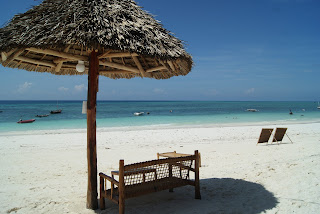Location: Windhoek, In the middle of Namibia: Khomas Region
Languages: English, Afrikaans, Oshiwambo
Population: 322 500
Prices: Services and gas are cheap, accommodation and goods on European price level
Attractions: Joe's Beerhouse, Heinitzburg castle, Christuskirche, National Gallery of Namibia
Info: Capital city of Namibia, Windhoek was founded by Jonker Afrikaner on 1840. Later came the Germans who settled around the area, which is why Windhoek still has a prominent German presence. Dry air and relatively high altitude (1700m) make nosebleeds common for all the newcomers. Most of the Namibian tourist attractions are located far away from the capital city, yet it still offers a lot to see for an open minded traveler.
SA Recommends:
Stellenbosch Wine Bar and Bistro (Nice restaurant albeit a bit posh, steaks so fine you can eat them practically raw. ),
Otjikaendu Den (delicious and authentic African dining experience, and you'll most definitely be the only tourist),
Fusion Restaurant (Family owned restaurant offering traditional African food)
17.11 8:27 GMT+1

After a sleepless night in a bus (which turned out to be almost two hours late, TIA) we're safely in Windhoek. It's early in the morning, yet the sun is shining brightly and temperature is almost 30 degrees and my sidekick Timo looks like a Milky Bar left in the sun for too long. Nothing has changed since my departure earlier this year, but I'm still as excited as ever. For me Windhoek is the closest thing to a home in Africa so coming back feels comforting. Taxi drivers greet us with unparalleled enthusiasm, which makes you feel like a celebrity for about ten seconds, after which the continuous harassing and sleeve pulling starts to remind you of a Mid-Eastern marketplace. But that's how it works in Windhoek. The absolutely horrendous public transportation network is replaced with gazillions of taxi's, that will take you anywhere in the city with maximum 18N$ (~1,8€) which is quite sweet deal, even if uninformed tourists will most likely always pay the maximum price. Sometimes the constant honking and shouting of the cab drivers will make you mad, but today the heat and our humongous backpacks make the wave of taxi drivers a welcomed sight.
20.11 8:27 GMT+1
The first things that really catch your eye in Windhoek are the traces of German colonization. Everything, from streets named after German composers, to churches that look like they were teleported here from late 1800:s Europe, make Windhoek seem very German at first. However anyone who spends in Windhoek more than a couple of days, will realize that the very kraut-y exterior hides inside lots of original African culture. One only has to take a 9N$ (90 euro cents) taxi ride north from the city center and all the signs of Namibia's black, red and golden big brother have vanished, except for the Volkswagens favored by the cab drivers.
1962 the imperialists in charge of Windhoek, in their unceasing wisdom, exiled the African population to a township few kilometers north of town and
Katutura (Herero for "The place where we do not want to live in") was born. Apartheid is long gone, but the saddening crime, alcoholism and poverty stricken shantytown is larger than ever. Nowadays the conditions in Katutura are considerably better than 50 years ago, still it only takes a short tour around the township to make even the most spoiled Euro-hick to understand how privileged we are without even realizing it. During my last visit, through some friends in right places, I was
offered the opportunity to visit a Katuturan orphanage, which forced
even me (not the most soft hearted person in the world admittedly) to
make promises to my future self about filling out some adoption papers. Like everywhere else, the hope of Katutura lies on the shoulders of the children. Education in Namibia is slowly getting better and better and the openheartedness and ability to enjoy the small things is something first world children might learn from children in Katutura. Unfortunately like in many African countries, poverty drives many less privileged kids to alcoholism and the better educated go straight to Europe or RSA, rather than stay in their countries to build a better future.
Katutura is definitely a must see for everyone visiting Windhoek. In addition to getting an eye opening first hand look of whats happening on the wrong side of the tracks, you find many opportunities to experience one of the most 'Namibian' things: meat and braaing (barbequing). Namibian nature offers amazing variety of game for all your culinary needs and since all the animals get to roam around freely their whole lives, even the more environmentally aware can enjoy the meat without losing their night sleep. Namibia is mostly dry and rough land, unusable for cultivation, so no wonder majority of the Namibian food pie consists of meat. Even though there is no chance any of the local meat markets would pass any standard western health inspection, the meat from a Katuturan braai (usually an old oil barrel cut vertically in half) is absolutely mouthwatering. As of Tuesday, I've had four dinners, three of which came straight from a braai.
22.11 22:40 GMT+1
Somehow the Windhoek-curse struck again and I've been bedridden by the flu for the past couple of days. Maybe it's a blessing to be sick now, since I was already quite familiar with Windhoek. Better to miss some action down here, than somewhere where I've never been before. Regardless of my unluckiness with the old
!Xu, the last few days in Windhoek have been very relaxing and it's time to set our eyes on the future. Our networking in the area turned out fruitful: we found a German traveler to join us to our next destination and our somewhat dynamic Finnish duo has transformed into three international musketeers. Tomorrow 3 in the afternoon we begin a bus trip towards northeast, where one of the seven natural world wonders, Victoria Falls, awaits us.
Next destination: Livingstone, Zambia
























